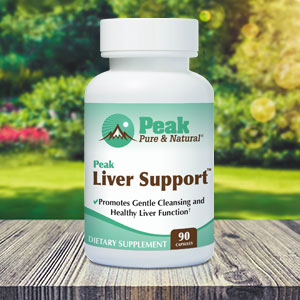Get Easy Health Digest™ in your inbox and don’t miss a thing when you subscribe today. Plus, get the free bonus report, Mother Nature’s Tips, Tricks and Remedies for Cholesterol, Blood Pressure & Blood Sugar as my way of saying welcome to the community!
The chemicals that trigger your body to make new fat cells

Have you given up the processed foods for a healthier, whole food diet — maybe even started exercising regularly… only to be disappointed that the inches aren’t coming off?
Then, let me share a secret…
Even if you are avoiding processed foods and sugary beverages and trying to eat right, you’re likely still subjecting your body to sneaky and harmful, fat-causing chemicals.
That’s right… fat-causing chemicals.
Chemicals work like glue to keep us fat
In the last decade, much research has come out about “obesogens,” compounds found to compromise the balance and development of lipid metabolism, often by disrupting endocrine function. That means they can impact your thyroid — and your liver.
Obesogens hijack the regulatory systems that control your body weight and make it almost impossible for you to maintain a healthy weight.
They can also trigger your body to make new fat cells. Worse, the new cells may be unusually large. This allows more fat to build up in your body, ultimately leading to weight gain.
In fact, one research paper described what they do to the body this way: Although it is self-evident that fat cannot be accumulated without a higher caloric intake than expenditure, recent research in a number of laboratories suggests the existence of chemicals that alter regulation of energy balance to favor weight gain and obesity. These obesogens derail the homeostatic mechanisms important for weight control, such that exposed individuals are predisposed to weight gain, despite normal diet and exercise.
Remember in the old days when someone was obese and your mom may have explained that the person had “glandular problems?” So now, it makes perfect sense as to why, after all the hard work some people put into maintaining a healthy weight, that the pounds just won’t come off.
All in all, peer-reviewed studies have identified 20 obesogens, at least three of which are found in great quantities in the average American household. They are bisphenol A (BPA), phthalates and perfluorooctanoic acid (PFOA).
BPA, PFOA and FAT
BPA is a synthetic compound used to make plastics and epoxy resins. It’s commonly found in water bottles, food containers and lining the inside of metal cans. BPA can leach into foods and drink from these sources. And, studies show BPA influences multiple endocrine-related pathways and it is linked to obesity in humans and animals.
Phthalates are chemicals added to plastics and other consumer goods. Phthalates have been linked to weight gain in people. Most important, three independent studies have found that phthalate levels are associated with increased waist circumference and abdominal obesity.
They are found in children’s toys, pharmaceutical products, food containers, paints and hundreds of other consumer goods. And a study published in the journal Molecular and Cellular Endocrinology in 2009 found that phthalates disrupt a hormone receptor that influences lipid and carbohydrate metabolism.
PFOA is commonly found in nonstick cookware made from Teflon. Exposure to high levels of PFOA is linked to thyroid problems, chronic kidney disease and several cancers. It has been shown in studies to increase adipose tissue weight in mice. Studies have found the chemical is likely present in 98 percent of the U.S. population.
Where the liver comes in
The liver is your body’s hardest-working organ, responsible for cleaning all the gunk it can out of your bloodstream. It aids in digestion by producing bile to help break down fat.
Natural, unprocessed nutrition and nutrients can help clear your body of harmful toxins and make the liver’s job somewhat easier to perform.
But when we take in toxins, the liver can get overwhelmed. It can’t work efficiently and most of those toxins are not effectively removed. They — obesogens — end up stored as fat cells. Fat cells harboring chemicals toxins are harder to break down. So that’s what we mean when we say they create a kind of fat that is “glued on.”
According to registered dietician Valerie Berkowitz, no matter how much you restrict calories, weight loss is near impossible unless you detox your liver. That’s just how closely it’s tied to our weight.
A four step fix
If you are eating organic whole foods to bring fewer chemicals into your body, but are still dealing with weight gain or a have middle that’s softer than you’d like, hidden obesogens are likely a contributing factor.
Avoid chemicals. Ditch water bottled in plastics; and if you drink filtered water, determine whether the filtration system contains any BPA. Besides, that, you should also chuck your nonstick cookware, plastic utensils and plastic food storage containers and cook with cast iron and/or stainless cookware.
Eat detoxing foods, like broccoli, cabbage, and cauliflower. They contain a compound that binds and eliminates some toxins.
You can also give your liver a little TLC to keep it functioning optimally. Natural support for your liver can come from milk thistle, turmeric and selenium.
And don’t forget your thyroid. Feed it iodine, zinc and copper, and it too appreciates selenium. Selenium has a knack for controlling body chemicals that make us fat.
Health on the outside must start on the inside.














